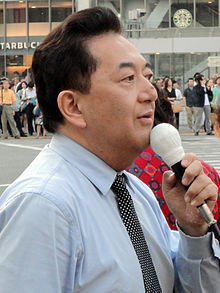
Universal basic income refers to a social welfare system where all citizens or residents of a country receive an unconditional lump sum income, meaning an income that is not based on need (i.e. it is not means tested). The proposal has been debated in a number of countries in recent years, including Japan.[1]
According to Hirano Hiroya of Mejiro University, the growing debate is understandable, as social exclusion, precarity in the labor market and poverty have increased in recent decades.[2] Indeed, the state welfare system in Japan developed quite late and is still considerably less generous than in Europe, with the state playing a much smaller role in welfare provision and families, local communities and corporations play a larger role.[3] In response to the combined effects of automation and job uncertainty, three political parties support universal basic income: Nippon Ishin no Kai, Reiwa Shinsengumi and Greens Japan. Japanese academics arguing for basic income include Toru Yamamori of Doshisha University and Hiroya Hirano of Nihon Fukushi University. Ronald Dore, a British sociologist specializing in the Japanese welfare state, has also been engaged in the basic income debate for many years, arguing for its implementation. The main organization promoting basic income in Japan is BIEN Japan, which is part of the Basic Income Earth Network (BIEN).[4]